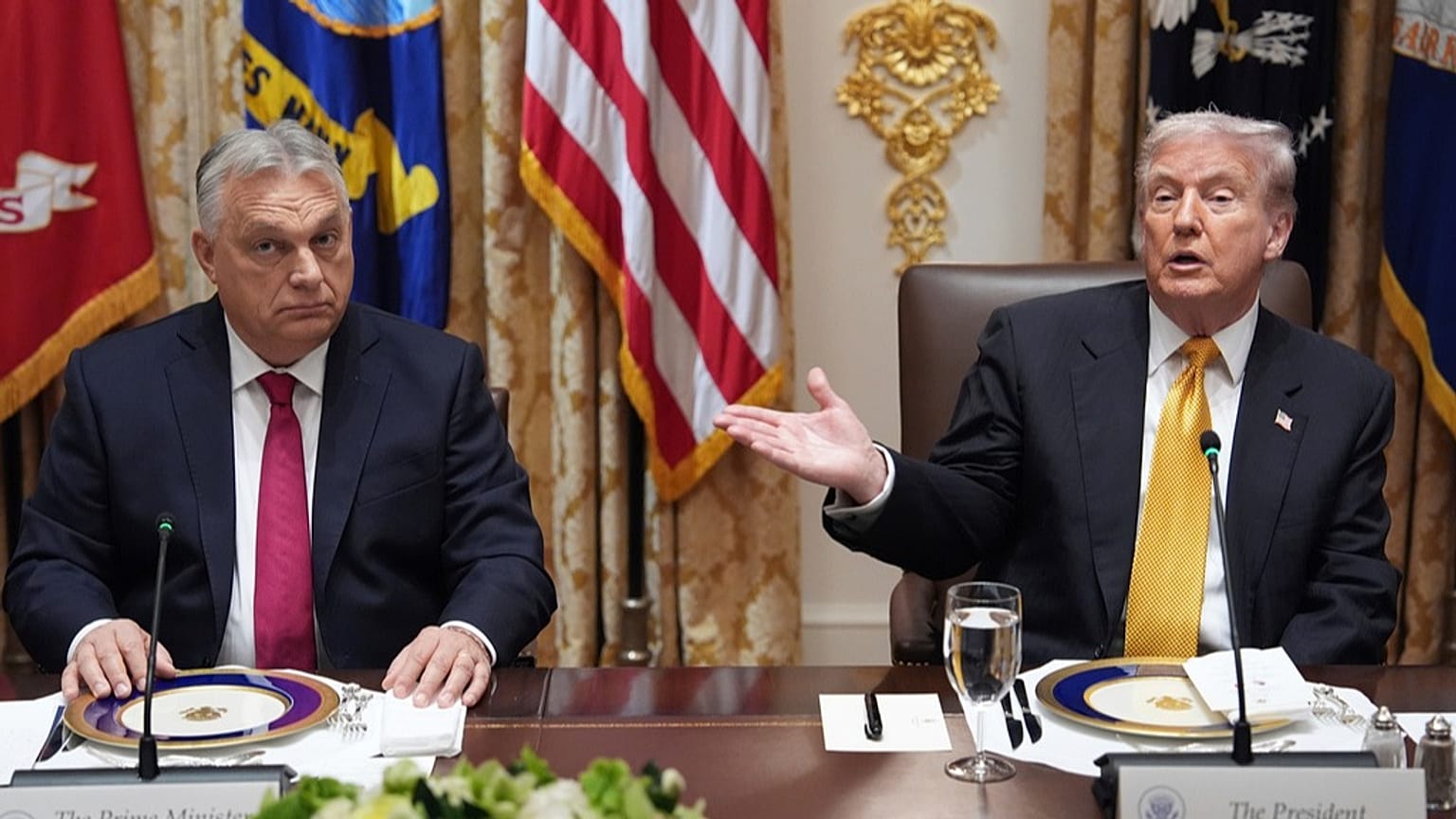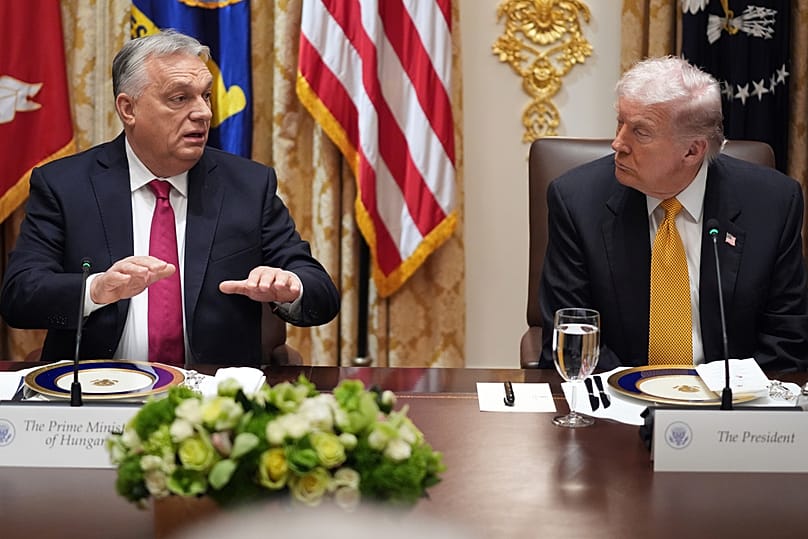The Hungarian leader said he has managed to convince US President Donald Trump to grant his country a full exemption from sanctions for the purchase of Russian energy, after detailing to him the dire consequences it would have on the Hungarian people.
Hungarian Prime Minister Viktor Orbán says his country has received an exemption from US sanctions on Russian energy after a meeting in the White House with President Donald Trump on Friday.
Trump granted Budapest an allowance that will keep Russian oil and gas flowing to Hungary in a sign of the close affinity between the two leaders.
Orbán, a longtime Trump ally, had come to Washington seeking to convince the US president to allow landlocked Hungary to continue importing Russian oil and gas without being subject to sanctions Trump's administration has placed on Russian energy.
A White House official, speaking on the condition of anonymity because they weren’t authorised to speak publicly, said Hungary will get an exemption for one year, to give the country a chance to sort out alternative energy plans.
Hungary has also been under heavy pressure to end its reliance on Russian energy from the European Union, most of which has heavily cut or ceased its imports of the Kremlin’s oil and gas.
The populist Hungarian premier has called access to Russian energy a “vital” issue for his landlocked country, and said he planned to discuss with Trump the “consequences for the Hungarian people” if the sanctions took effect.
During a press briefing with Hungarian media following his talks with Trump, Orbán said Hungary had "been granted a complete exemption from sanctions” affecting Russian gas delivered to Hungary from the TurkStream pipeline, and oil from the Druzhba pipeline.
“We asked the president to lift the sanctions,” said Orbán. “We agreed and the president decided, and he said that the sanctions will not be applied to these two pipelines.”
Hungary has in turn agreed to buy US liquefied natural gas (LNG) as part of the discussions, the US State Department said in a fact sheet, noting contracts were expected to be worth about $600 million (€518.6 million).
The two nations also agreed to work together on nuclear energy, including small modular reactors. Budapest will also purchase nuclear fuel from the US-based Westinghouse Electric Company, Orbán noted.
That fuel will be used to power Hungary’s Paks nuclear plant, which until now has relied on Russian-supplied nuclear fuel, though Hungarian officials earlier stressed that Budapest will continue its purchase of Russian nuclear fuel as well.
Prior to Orbán’s arrival on Thursday, a bipartisan group of US senators introduced a resolution calling on Hungary to end its dependence on Russian energy.
The resolution was co-signed by 10 senators including Republicans Mitch McConnell of Kentucky, Thom Tillis of North Carolina and Chuck Grassley of Iowa, as well as Democrats Jeanne Shaheen of New Hampshire and Chris Coons of Delaware.
The resolution expresses concern the Hungary has shown no sign to indicate an intent to reduce the dependence on Russian energy, and urged Budapest to adhere to the European Union plan to cease all energy imports from Moscow into the bloc by the end of 2027.
















